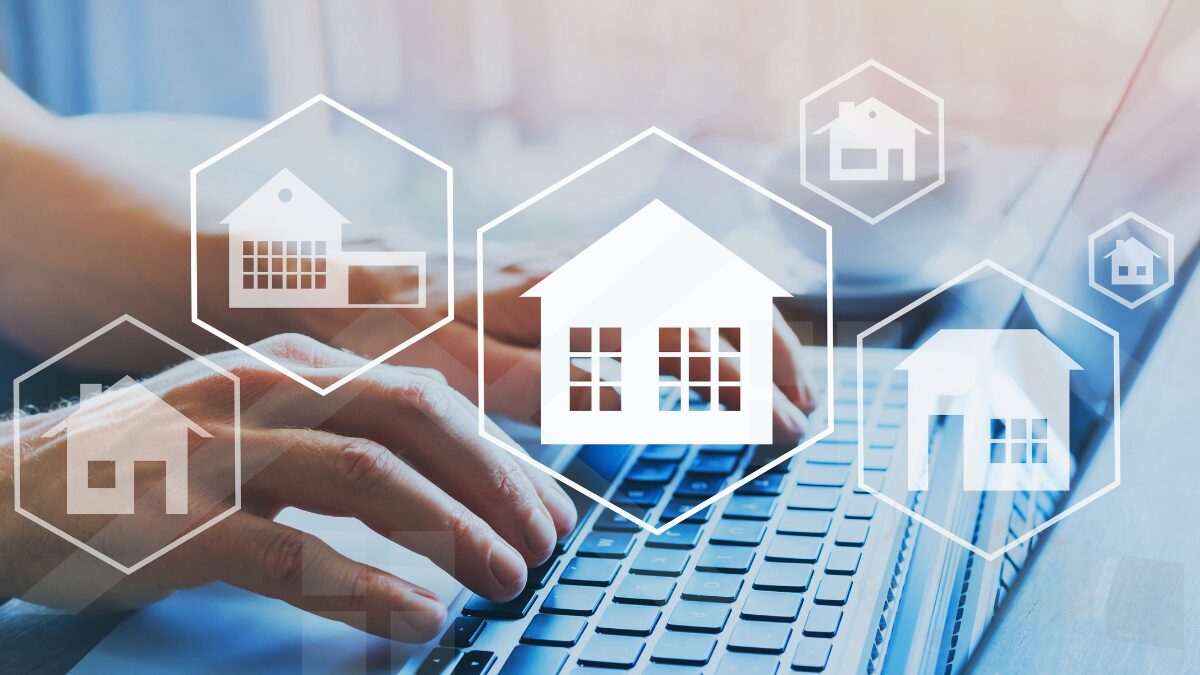A growing number of contemporary homes are outfitted with smart home technologies in this era of rapid technological advancement. Adding smart home technologies to your rental homes can boost property value and make tenants happier, among other advantages for property managers. This article delves into the many benefits of providing rental houses with smart home features and why it’s a wise investment.
Key Takeaways:
- Smart home features offer convenience, security, energy efficiency, and proactive maintenance, improving tenant satisfaction and comfort.
- Properties with smart home technology can command higher rents, reduce vacancy rates, lower maintenance costs, and save on energy bills.
- Smart home features attract tech-savvy tenants, modernize older properties, and build a positive reputation for being innovative and tenant-focused.
- Smart home technology promotes sustainability by reducing the carbon footprint and ensuring compliance with energy efficiency regulations.
Enhanced Tenant Experience
Convenience and Comfort: Smart home devices such as smart thermostats, lighting, and voice-activated assistants offer unparalleled convenience. Tenants can control their home environment with a simple voice command or through a mobile app, making their daily lives more comfortable and efficient.
Security: Features like smart locks, video doorbells, and security cameras enhance the safety and security of rental properties. Tenants can monitor their homes remotely, receive real-time alerts, and grant access to visitors without being physically present, providing peace of mind.
Energy Efficiency: Smart thermostats and lighting systems can significantly reduce energy consumption. Tenants can set schedules and control their devices remotely, ensuring energy is not wasted when they are not home. This not only lowers utility bills but also appeals to environmentally conscious renters.
Maintenance and Monitoring: Smart sensors can detect issues such as water leaks, smoke, or carbon monoxide levels early. Immediate alerts to both tenants and property managers allow for quick action, preventing minor issues from escalating into costly repairs.
Financial Benefits
Increased Rental Income: Properties equipped with smart home features often command higher rents. Tenants are willing to pay a premium for the added convenience, security, and efficiency that smart technology provides.
Reduced Vacancy Rates: Smart home features can make a rental property more attractive in a competitive market. Properties that stand out with modern amenities are likely to lease faster and retain tenants longer, reducing vacancy periods.
Lower Maintenance Costs: Proactive maintenance through smart sensors can lead to significant savings. Early detection of issues such as leaks or HVAC problems can prevent extensive damage and costly repairs.
Energy Savings: Smart home technology can lead to lower energy consumption, reducing operating costs. Smart thermostats, for example, can optimize heating and cooling schedules, ensuring efficient energy use.
Marketing and Competitive Advantage
Attracting Tech-Savvy Tenants: The millennial and Gen Z demographics, which constitute a large portion of the rental market, are particularly attracted to smart home features. These tech-savvy tenants often prioritize properties with modern amenities.
Modern Appeal: Offering smart home features can modernize older properties, making them more appealing to potential renters. This can be a significant advantage in attracting tenants looking for up-to-date living spaces.
Positive Reputation: Properties that offer smart home technology can build a reputation for being innovative and tenant-focused. Positive reviews and word-of-mouth recommendations can enhance the property’s appeal.
Environmental Impact
Sustainability: Smart home features contribute to a more sustainable living environment. Energy-efficient devices reduce the carbon footprint of the property, aligning with the growing trend of environmental consciousness among renters.
Compliance with Regulations: As energy efficiency regulations become stricter, smart home technology can help ensure compliance. Properties that meet or exceed these standards may benefit from incentives or avoid penalties.
Implementation Considerations
Initial Investment: While there is an upfront cost associated with installing smart home features, the long-term benefits often outweigh the initial expenditure. Financing options and incentives may be available to offset these costs.
Tenant Education: Educating tenants on how to use smart home devices is crucial for maximizing their benefits. Providing user manuals, tutorials, and support can help tenants fully utilize the technology.
Data Privacy and Security: Ensuring that smart devices are secure and that tenant data is protected is paramount. Choose reputable brands and stay updated on best practices for data security to maintain tenant trust.
FAQs
1. What types of smart home features are most beneficial for rental properties?
Popular smart home features for rental properties include smart thermostats, smart locks, video doorbells, security cameras, and smart lighting systems. These features offer convenience, enhance security, and improve energy efficiency.
2. How can smart home technology impact rental income and property value?
Properties equipped with smart home features can command higher rents and attract tenants more quickly, reducing vacancy rates. Additionally, these modern amenities can increase the overall value of the property.
3. Are there any concerns regarding tenant privacy and data security with smart home devices?
Ensuring tenant privacy and data security is crucial. Property managers should choose reputable brands, keep devices updated with the latest security patches, and educate tenants on how to securely use the smart home technology.
Conclusion
From higher financial returns to happier tenants, there are a lot of upsides to installing smart home features in rental homes. Property managers could consider investing in smart homes as a strategic move due to the rising demand for such systems and the rapid advancement of technology. In order to remain competitive, attract high-quality renters, and make your rental property more efficient and attractive, smart home technology is a must-have.

